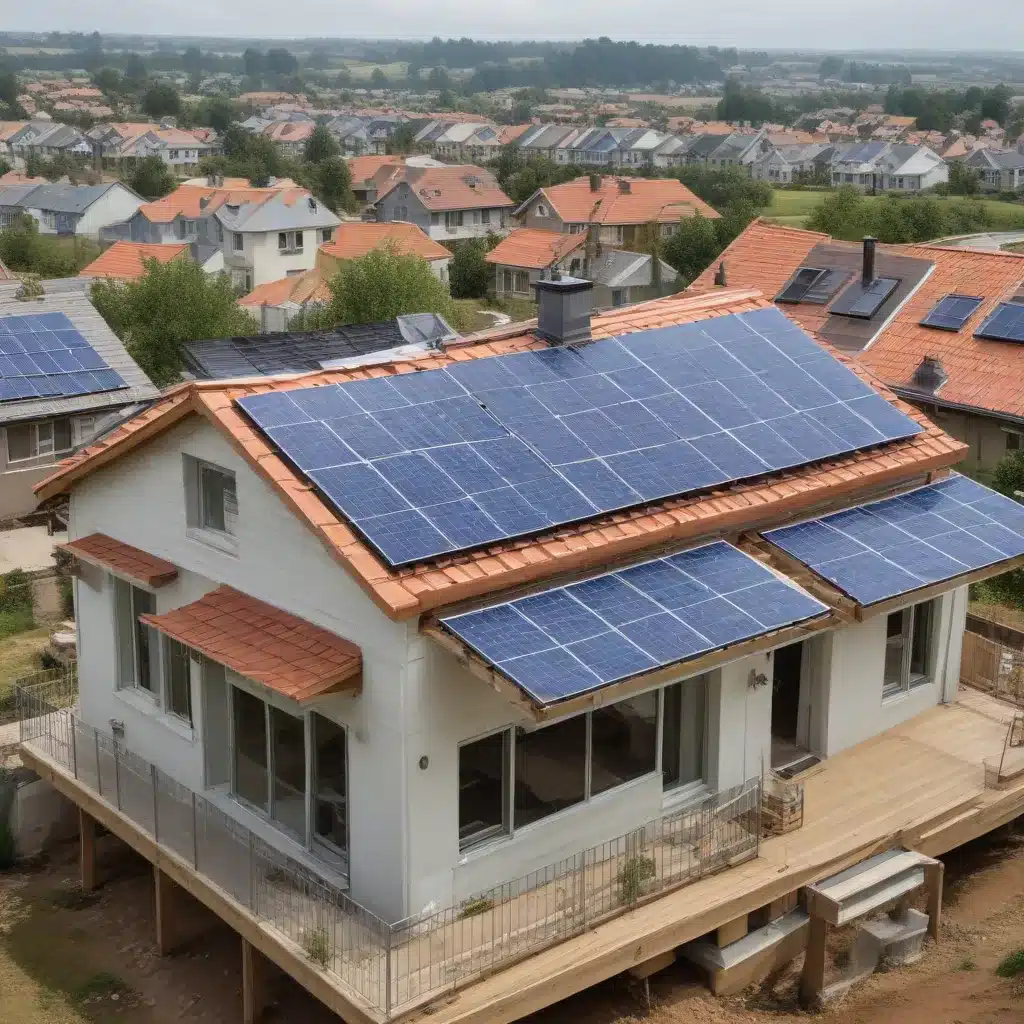
Sustainable Building Practices
As an experienced home extension consultant, I’ve seen firsthand how sustainable building practices can transform the way we approach home renovations and additions. In this article, we’ll delve into the key elements of sustainable home extensions, from energy-efficient design to renewable material selection and waste reduction strategies.
Energy-Efficient Design
The foundation of a sustainable home extension lies in its energy-efficient design. By optimizing the building’s orientation, incorporating passive solar principles, and selecting high-performance insulation and windows, you can significantly reduce your home’s energy demands. This not only lowers your carbon footprint but also translates to long-term savings on utility bills.
Renewable Material Selection
Choosing sustainable building materials is crucial for minimizing the environmental impact of your home extension. From responsibly sourced timber to recycled or reclaimed materials, there are a wealth of options that can contribute to a more eco-friendly project. Additionally, exploring the use of natural, breathable materials like hemp, straw, or rammed earth can further enhance the sustainability of your home.
Waste Reduction Strategies
Sustainable home extensions also prioritize the reduction of construction waste. By adopting practices like careful material planning, modular design, and on-site waste sorting, you can divert a significant portion of your project’s waste from landfills and instead direct it towards recycling or repurposing.
Sustainable Building Certifications
To ensure your home extension meets the highest standards of sustainability, it’s essential to consider certifications that validate your efforts. Two of the most recognized sustainable building certifications are LEED (Leadership in Energy and Environmental Design) and various national green building standards.
LEED Certification
LEED, developed by the U.S. Green Building Council, is a comprehensive certification program that evaluates the environmental performance and sustainability of buildings. By pursuing LEED certification for your home extension, you can demonstrate your commitment to energy efficiency, water conservation, indoor air quality, and more.
Green Building Standards
In addition to LEED, many countries have their own green building standards that provide a framework for sustainable construction. In the UK, for example, the Building Research Establishment Environmental Assessment Method (BREEAM) is a widely recognized certification that assesses the environmental, social, and economic sustainability of buildings.
Integrating Solar Energy
Harnessing the power of the sun is a crucial component of sustainable home extensions. By incorporating solar energy technologies, you can not only reduce your reliance on traditional energy sources but also generate clean, renewable electricity for your home.
Solar Energy Technologies
There are several solar energy technologies to consider for your home extension project. Photovoltaic (PV) systems convert sunlight directly into electricity, while solar thermal systems harness the sun’s heat to provide hot water or space heating. Hybrid solar solutions, which combine both PV and thermal components, offer an integrated approach to maximizing the benefits of solar energy.
Solar Energy Economics
The financial viability of solar energy for your home extension is a key consideration. Fortunately, there are a variety of government incentives and private financing options available to help offset the upfront costs. From tax credits and renewable energy subsidies to solar leases and community solar initiatives, you can explore the most suitable solar financing model for your project.
Sustainable Financing Models
Bridging the gap between the desire for sustainable home extensions and the practical realities of financing can be a challenge. However, by tapping into government incentive programs and exploring alternative financing models, you can make sustainable home improvements more accessible.
Government Incentive Programs
Governments around the world are offering a range of incentives to encourage the adoption of sustainable building practices and renewable energy solutions. These can include tax credits, rebates, and grants for energy-efficient upgrades, renewable energy installations, and even whole-home retrofits. By taking advantage of these programs, you can significantly reduce the financial burden of your sustainable home extension.
Private Financing Alternatives
In addition to government incentives, there are various private financing options available for sustainable home extensions. Solar leases and power purchase agreements (PPAs) allow homeowners to access solar energy without the upfront costs of ownership. Green mortgages, which offer better terms for energy-efficient homes, are another option to consider. Community solar initiatives, where multiple homeowners share the benefits of a centralized solar array, can also be an attractive solution.
Bridging the Gap
Achieving true sustainability in home extensions requires a holistic approach that integrates sustainable building practices, solar energy integration, and innovative financing models. By embracing this comprehensive strategy, you can create a home that not only reduces its environmental impact but also provides long-term financial and lifestyle benefits.
Holistic Approach to Sustainability
The key to success lies in the integrated design process, where architects, engineers, and construction professionals work collaboratively to optimize the sustainability of your home extension. This collaborative approach ensures that every aspect of the project, from energy efficiency to material selection, is aligned with your sustainability goals.
Overcoming Barriers to Adoption
While the benefits of sustainable home extensions are clear, there can be barriers to widespread adoption. Upfront cost concerns, regulatory challenges, and a lack of public awareness and acceptance can all hinder progress. However, by addressing these obstacles head-on and demonstrating the long-term advantages of sustainable home improvements, we can pave the way for a more eco-friendly and financially viable future.
As an experienced home extension consultant, I’ve seen the transformative power of sustainable building practices, solar energy integration, and innovative financing models. By embracing this holistic approach, you can create a home extension that not only enhances your living space but also contributes to a more sustainable future. To learn more about our sustainable home extension services, please visit https://abc-home.co.uk/home-extension/.
















